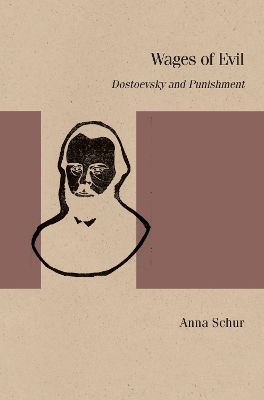
Wages of Evil
Dostoevsky and Punishment
Seiten
2022
Northwestern University Press (Verlag)
978-0-8101-4448-4 (ISBN)
Northwestern University Press (Verlag)
978-0-8101-4448-4 (ISBN)
Incorporates sources from philosophy, criminology, psychology, and history to argue that Dostoevsky's thinking about punishment was shaped not only by his Christian ethics but also by the debates on penal theory and practice unfolding during his lifetime.
Dostoevsky’s views on punishment are usually examined through the prism of his Christian commitments. For some, this means an orientation toward mercy; for others, an affirmation of suffering as a path to redemption. Anna Schur incorporates sources from philosophy, criminology, psychology, and history to argue that Dostoevsky’s thinking about punishment was shaped not only by his Christian ethics but also by the debates on penal theory and practice unfolding during his lifetime.
As Dostoevsky attempts to balance the various ethical and cultural imperatives, he displays ambivalence both about punishment and about mercy. This ambivalence, Schur argues, is further complicated by what Dostoevsky sees as the unfathomable quality of the self, which hinders every attempt to match crimes with punishments. The one certainty he holds is that a proper response to wrongdoing must include a concern for the wrongdoer’s moral improvement.
Dostoevsky’s views on punishment are usually examined through the prism of his Christian commitments. For some, this means an orientation toward mercy; for others, an affirmation of suffering as a path to redemption. Anna Schur incorporates sources from philosophy, criminology, psychology, and history to argue that Dostoevsky’s thinking about punishment was shaped not only by his Christian ethics but also by the debates on penal theory and practice unfolding during his lifetime.
As Dostoevsky attempts to balance the various ethical and cultural imperatives, he displays ambivalence both about punishment and about mercy. This ambivalence, Schur argues, is further complicated by what Dostoevsky sees as the unfathomable quality of the self, which hinders every attempt to match crimes with punishments. The one certainty he holds is that a proper response to wrongdoing must include a concern for the wrongdoer’s moral improvement.
ANNA SCHUR is a professor of English at Keene State College in New Hampshire.
Introduction
Chapter 1: The Scaffold and the Rod: Dostoevsky on the Death Penalty and Corporal Punishment
Chapter 2 : "Squaring the Circle": The Justice of Punishment
Chapter 3: Foregoing Punishment: Dostoevsky’s Third Category and the Case of Ekaterina Kornilova
Chapter 4: "A Mummy" or a "Resurrected" Self?
Chapter 5: "India Rubber," the "Living Soul," and the Process of Moral Change
Chapter 6: Approximations of Justice: The Novel in the Courtroom
Afterword
Notes
Bibliography
| Erscheinungsdatum | 10.03.2022 |
|---|---|
| Reihe/Serie | Studies in Russian Literature and Theory |
| Verlagsort | Evanston |
| Sprache | englisch |
| Maße | 152 x 229 mm |
| Gewicht | 335 g |
| Themenwelt | Geisteswissenschaften ► Sprach- / Literaturwissenschaft ► Anglistik / Amerikanistik |
| Geisteswissenschaften ► Sprach- / Literaturwissenschaft ► Literaturwissenschaft | |
| ISBN-10 | 0-8101-4448-4 / 0810144484 |
| ISBN-13 | 978-0-8101-4448-4 / 9780810144484 |
| Zustand | Neuware |
| Haben Sie eine Frage zum Produkt? |
Mehr entdecken
aus dem Bereich
aus dem Bereich
Poetik eines sozialen Urteils
Buch | Hardcover (2023)
De Gruyter (Verlag)
59,95 €
Buch | Softcover (2024)
belleville (Verlag)
20,00 €


